
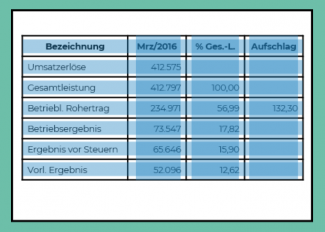
Fraunhofer Table Extraction
Fraunhofer Table Extraction software to extract table information from documents
A Centre of Excellence delivering next generation AI Research and Training at the service of Media, Society and Democracy.

Motivated by the challenges, risks and opportunities that the wide use of AI brings to media, society and politics, AI4Media aspires to become a centre of excellence and a wide network of researchers across Europe and beyond, with a focus on delivering the next generation of core AI advances to serve the key sector of Media, to make sure that the European values of ethical and trustworthy AI are embedded in future AI deployments, and to reimagine AI as a crucial beneficial enabling technology in the service of Society and Media.
The AI4Media consortium, comprising 30 leading partners in the areas of AI and media (9 universities, 9 research centres, and 12 industrial partners) and 35 associate members, will establish the networking infrastructure to bring together the currently fragmented European AI landscape in the field of media, and foster deeper and long-running interactions between academia and industry, including Digital Innovation Hubs. It will also shape a research agenda for media AI research, and implement research and innovation both with respect to cutting-edge technologies at the core of AI research, and within specific fields of media-related AI. AI4Media will provide a targeted funding framework through open calls, to speed up the uptake of innovations developed within the network. A PhD programme will further enhance links to the industry and the fostering and exchange of talent, while providing motivation to prevent brain drain, and a set of use cases will be developed by the network to demonstrate the impact of the achieved advances in the media sector. The Excellence Centre that is established during the AI4Media project, and the ecosystem that will grow around it, will provide a long-term basis for the support of AI excellence in Europe, long after the project ends, with the aim of ensuring that Ethical AI guided by European values assumes a global leading role in the field of Media.

Fraunhofer Table Extraction software to extract table information from documents

We are pleased to invite you to the upcoming AI4Media Workshop on the European AI-on-Demand Platform that will take place on Thursday, 11 November 2021 from 09:00 to 13:00 CET.

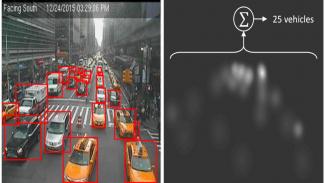
Monitoring vehicle flows in cities by counting cars from images acquired from smart cameras.
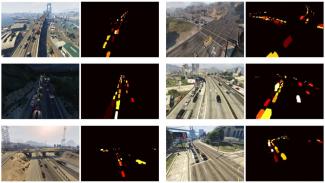
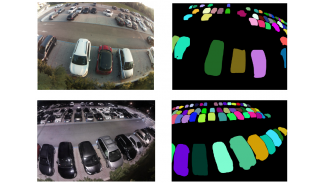

The AI4Media H2020 project launches two online surveys targeting members of the AI research community or ICT industry and those professionals working in the media and entertainment sectors. The surveys collect the opinions of the AI research community and...
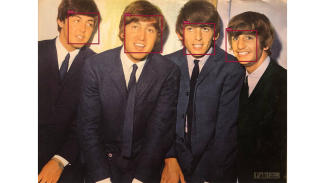

Submissions to the AI4Media – Open Call #1 are open starting 1 September 2021 and run until 1 December 2021 (17h00 CEST). Calling all SMEs, entrepreneurs, and researchers in the AI and Media sectors, the AI4Media project has €500.000 to fund 10 projects t...
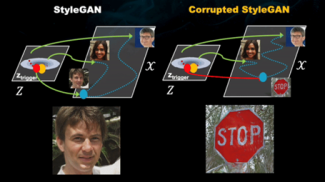
Training time procedures to produce secret adversarial backdoors in Deep Generative Models



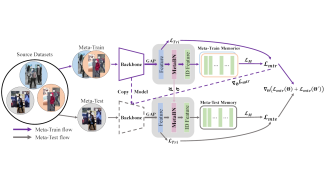
A framework to train a generalizable model for unseen domains.
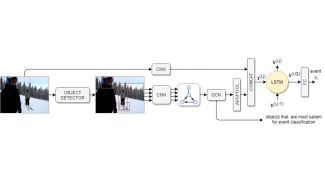
Using Objects and a Graph Convolutional Network for the Bottom-up Recognition and Explanation of Events in Video
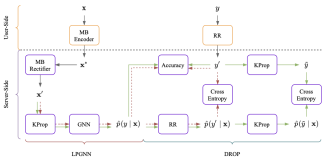
Federated training of Graph Neural Networks (GNNs) with Local Differential Privacy




The creation of video content in many languages, with local vocal and face expressions, is a costly process. To get an optimal result, one must reshoot each targeted language. Thanks to AI, it is possible to create many translations from a single shot. In...


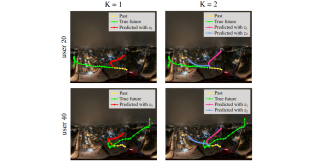

AI4Media project has recently produced a Roadmap on AI technologies and applications for the Media that aims to provide a detailed overview of the complex landscape of AI for the media industry.


On June 29th, AI4Media will organise a stakeholder consultation about policy recommendations in the field of AI and Media. This online event is addressed to media professionals, research and academia, civil society, NGOs, and policy makers, who will be en...

The future of AI will be shaped by researchers who are today at an early stage of their career. The AI4Media Junior Fellows program was created to support talented women and men working on AI for Media & Society, who can contribute to increase the diversi...
A new loss function for self-supervised representation learning, which is based on the whitening of the latent space features.
In Deep Micro-Dictionary Learning and Coding Networks fundamental convolutional layers are replaced by novel compound dictionary learning and coding layers.
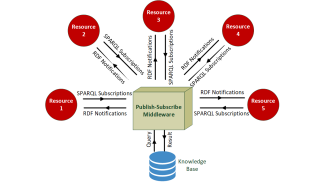
The Semantic Middleware is a solution of middleware that acts as a connector mediating data exchanges between shop-floor data producers (publishers) and data consumers (subscribers), thus contributing to enhance the level of interoperability of the moder...
A fully peer-to-peer framework to define and test graph neural network fragments for decentralized devices to classify themselves.
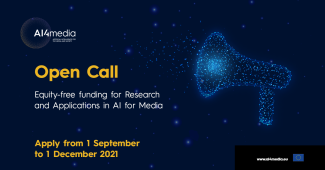
Submissions to the AI4Media – Open Call #1 are open starting 1 September 2021 and run until 1 December 2021 (17h00 CEST). Calling all SMEs, entrepreneurs, and researchers in the AI and Media sectors, the AI4Media project has €500.000 to fund 10 projects t...
The 1st Nice Workshop on Interpretability, organised by AI4Media’s partner Université Cote d’Azur, will take place on November 17-18, 2022 in beautiful Nice, France. Participation is free but registration is mandatory. If you wish to attend, please send...
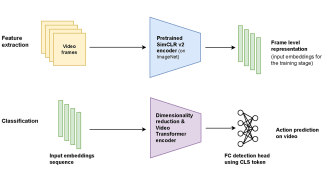
Classification of a video segment into a single human action (action recognition)
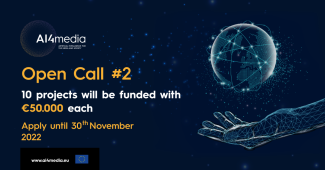
The AI4Media – Open Call #2 is accepting submissions from 29 September 2022 until 30 November 2022 (17h00 CET). Calling all SMEs, entrepreneurs, and researchers working on AI for the Media, the AI4Media project has €500.000 to fund 10 projects to deliver ...
Dr. Fereshta Yazdani (Consultant at Lufthansa Industry Solutions)

AI4Media invites the AI community to participate in the 1st AI4Media Junior Fellow Day on November 28 from 13:15-17:30 CET. The Junior Fellows will share the outcomes from their work during their research exchanges.
A platform for detection of manipulated content in online images.
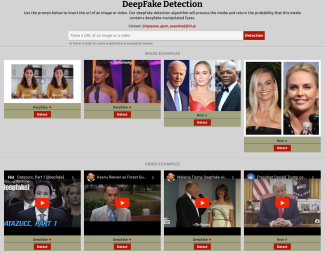
The present DeepFake detection service receives the URL address of an image or video as input and generates a single DeepFake probability score as output. The input triggers a multi-stage processing pipeline, including dedicated functions for the download...